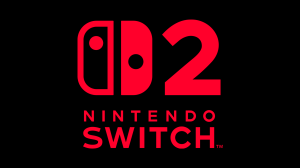Former The Walking Dead showrunner Frank Darabont‘s ongoing, near five-year lawsuit against AMC over profits from the zombie drama had a new hearing in New York Supreme Court Wednesday, but the case looks to continue indefinitely.
Videos by ComicBook.com
According to Deadline, Darabont, who is suing over profits owed from the hit series, and AMC, who own and produce the show, met with New York Supreme Court Judge Eileen Bransten Wednesday in a 90-minute session to debate the plaintiffs’ motion for a summary judgment. Bransten reportedly ended the meeting saying she would mull the issues, but did not specify when she planned to hand down a decision.
Darabont was the first showrunner on The Walking Dead in its inaugural season before he was fired by the network. His lawsuit says he was conned out of his rightful share of Walking Dead profits, now upwards of $300 million and growing as the show pulls in ratings worldwide.
Attorneys for Darabont previously asked for a summary judgment that, if granted, would set damages. AMC prefers to have the outcome decided by jury.
“It is our strong view that plaintiffs have torpedoed their request for summary judgment,” said Orin Snyder, AMC’s lead attorney.
Per Deadline, Snyder said by filing a second lawsuit over The Walking Dead‘s grosses — which Darabont’s reps described as an effort to enforce its right to audit AMC’s financial accounting of the show — Darabont and Creative Artists Agency contradicted themselves. Snyder said they offered one method of calculating participation in an older case and then they offered a different one in the newer case filed in late 2017.
Snyder called the plaintiffs’ contentions a “factual morass” as well as “chaos” and an “ungodly mess.”
Darabont’s lead attorney, Jerry Bernstein, said the network has “consistently mischaracterized” the two complaints filed by Darabont and CAA as a means of showing inconsistencies. Bernstein described multiple versions of the imputed license fee projection exchanged by both camps in an effort to resolve the contract, to which Judge Bransten asked if any versions of that ILF were signed by both parties.
“No, none of them was signed,” Bernstein said. “We couldn’t agree. That’s why we’re here.”
Bransten will retire from the bench at the end of December and may not be the one to oversee a resolution to the case, Deadline reports, which adds the judge grew “restless” toward the latter stage of the hearing.
“This better be quick,” she told Bernstein, before telling Snyder, “We have gone way beyond the request for summary judgement.”
Darabont was ousted from his position as showrunner during The Walking Dead‘s second season in 2011. His lawsuit against the network brought to light abusive emails that AMC cited as reason for his firing, noting Darabont’s “volatile and disturbing interactions with staff and talent were impacting production.”
Despite a strong performance by The Walking Dead‘s first season in 2010 — a season that set a viewership record for basic cable — AMC slashed the budget for Season Two, adding to Darabont’s growing tensions with the network. He was later fired and replaced by Glen Mazzara, who operated as showrunner until he was replaced by Scott Gimple for Season Four onwards.
Darabont and his agents filed suit in 2013 claiming they were denied their rightful share of profits generated by The Walking Dead. Darabont and his camp claim AMC, by way of creative accounting, made the hit series seem less valuable than it is in reality as a means of cutting him out of profits he’s contractually owed.
According to the filmmaker, AMC Networks licensed The Walking Dead from AMC Studios at a rate well under its fair market value, impacting the licensing fee — a significant part of how compensation owed to Darabont is calculated. While that license fee formula has since been revised, making it closer to its true market value, Darabont aims to collect what he says he’s owed for those early episodes.
In his initial affidavit, Darabont said the lawsuit “is about AMC’s radically undervaluing The Walking Dead in order not to share profits in a manner reflecting the show’s actual fair market value. This lawsuit is also about AMC’s refusal to share the unprecedented success of the show with the people who actually created that success for them, and about AMC’s self-dealing and corporate greed.”
The Walking Dead returns with its ninth season this fall on AMC.








